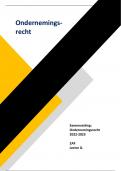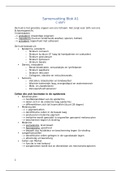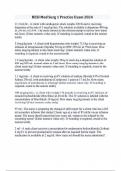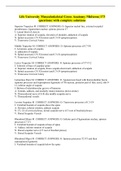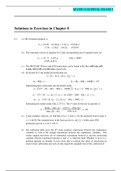Tentamen (uitwerkingen)
Applied Law Coursework Piece Unit 2 P6
- Vak
- Instelling
This is my P6 coursework piece for Unit 2 Applied Law Level 3. My work received the highest grade, a guaranteed pass if you are following this structure. I have included case examples, so no extra researching. Where I have included my own exam brief, you can substitute your own case in. Good Luck :)
[Meer zien]






